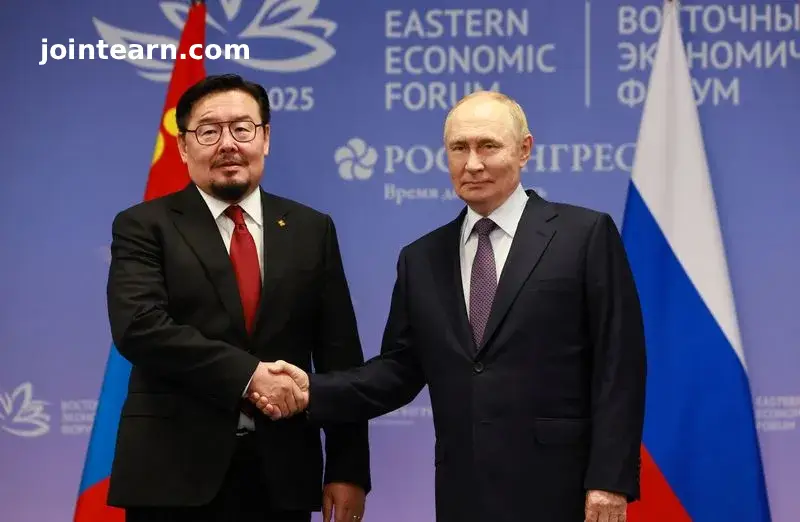
Mongolia Faces Political Upheaval as Prime Minister Gombojav Zandanshatar Resigns After Four Months in Office
BEIJING (Reuters) — Mongolia’s Prime Minister Gombojav Zandanshatar has officially stepped down after just four months in office, following a parliamentary vote of no confidence that stripped him of support from lawmakers. The abrupt resignation marks another period of political instability for the landlocked, resource-rich nation caught between global powers China and Russia.
According to China’s state-run Xinhua News Agency, the Mongolian parliament, or State Great Khural, voted to dismiss Zandanshatar on Friday after a heated session in the capital, Ulaanbaatar. The vote follows weeks of political infighting and waning confidence in the prime minister’s ability to steer the government amid mounting economic and corruption challenges.
A Short-Lived Tenure Amid Growing Political Turbulence
The 55-year-old Zandanshatar, a veteran diplomat and former foreign minister and parliamentary speaker, was appointed as Mongolia’s 32nd prime minister in June 2025, succeeding Luvsannamsrai Oyun-Erdene, who himself resigned earlier this year after facing corruption allegations and massive street protests.
His departure marks the second prime ministerial resignation in less than a year, underscoring the fragile political environment that has come to define Mongolia’s democratic landscape in recent years.
Despite pledges to restore public trust, strengthen transparency, and diversify the economy, Zandanshatar’s administration was hampered by deep divisions within the ruling Mongolian People’s Party (MPP) and growing dissatisfaction over economic stagnation and government accountability.
President Khurelsukh to Nominate Successor Amid Leadership Vacuum
Under Mongolia’s constitution, President Ukhnaa Khurelsukh, who has led the country since 2021, is now expected to nominate a new prime minister. The nominee must secure majority approval from the State Great Khural before assuming office.
Political analysts suggest that Khurelsukh, himself a former prime minister, will seek a loyal and reform-minded figure to stabilize the government before the next parliamentary elections. However, with public frustration mounting, the president’s choices may face intense scrutiny both from parliament and the streets.
“The rapid turnover of leadership raises serious concerns about Mongolia’s policy continuity,” said Enkhbat Batbayar, a Ulaanbaatar-based political analyst. “Investors and international partners need reassurance that the government remains committed to economic stability and reform.”
Economic Strains and Public Anger Fuel Political Crisis
Mongolia, which relies heavily on its vast coal, copper, and rare-earth mineral exports, has struggled to sustain growth amid falling global commodity prices and ongoing geopolitical uncertainties.
The World Bank recently revised its 2025 economic growth forecast for Mongolia down to 5.9%, compared to its earlier estimate of 6.3%, citing lower coal demand, inflationary pressures, and wage stagnation.
In 2024, Mongolia’s economy grew by 4.9%, but analysts warn that political turmoil could further erode investor confidence and slow down critical infrastructure and mining projects.
Public anger has been rising due to corruption scandals, a widening wealth gap, and a perception that Mongolia’s rich natural resources benefit only a small elite. Street demonstrations earlier this year — initially sparked by allegations of coal export theft — grew into broader protests demanding government accountability and reform.
Foreign Relations and Regional Context
Zandanshatar’s resignation also comes at a time when Mongolia is navigating complex diplomatic relations with its two powerful neighbors, Russia and China, while maintaining close ties with Western democracies and international financial institutions.
In early September, the outgoing prime minister met with Russian President Vladimir Putin at the Eastern Economic Forum in Vladivostok, where the two discussed regional cooperation and infrastructure development. Analysts note that the leadership shakeup in Ulaanbaatar could temporarily slow bilateral projects related to energy and transportation.
“Mongolia plays a delicate balancing act between Russia and China,” said Tseden Dashdorj, an international relations scholar. “Any leadership change in Ulaanbaatar tends to reverberate across the region, especially when economic or security agreements are on the table.”
Investor Uncertainty Looms Over Mongolia’s Resource Sector
The departure of two prime ministers within months has created a climate of uncertainty for both domestic and international investors. Mongolia’s mining industry — the backbone of its economy — is now facing delays in project approvals, policy uncertainty, and concerns about regulatory transparency.
Foreign investors are closely watching whether the next administration will maintain a pro-business stance or introduce new nationalist economic policies aimed at appeasing the domestic electorate.
A Test for Mongolia’s Democracy
Since transitioning from communism in 1990, Mongolia has been regarded as a rare democratic success story in Central Asia. However, frequent government reshuffles, allegations of elite corruption, and public disillusionment have tested the resilience of its democratic institutions.
Zandanshatar’s resignation after just four months underscores the chronic instability plaguing Mongolian politics — a challenge that will likely persist unless systemic reforms are introduced to strengthen party accountability and governance structures.
“Mongolia’s democracy remains vibrant, but its institutions are fragile,” said Batbayar. “The next leader must deliver not just economic results, but also restore faith in the political process.”
Outlook: Mongolia’s Political Future
As President Khurelsukh moves swiftly to appoint a new government, Mongolia’s next leader will face enormous pressure to stabilize the economy, rebuild investor confidence, and implement anti-corruption measures.
The coming weeks will be crucial in determining whether the country can avoid deeper political fragmentation or slide into yet another cycle of instability.


Leave a Reply